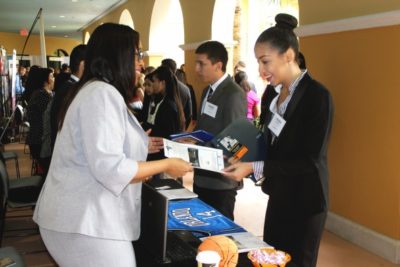Florida International University, University of Central Florida and University of South Florida, were national leaders in CollegeNET’s Social Mobility Index report. The report ranked over 1,350 universities. Florida International University landed at 36, the University of Central Florida at 47, and the University of South Florida came in at 73. FIU, UCF, and USF also took three of the top spots in the state of Florida. The report analyzed a number of factors including early career salary, number of Pell eligible students, debt to income ratio based on tuition rates, graduation rates, and the ratio of Pell to affluent students. Why is this important? Social mobility is quickly becoming an indicator of return on investment in higher education. “It’s tremendously important that a society have social mobility because you can imagine a society in which there is a wide distribution of income. More students are able to rise from flipping burgers to being the CEO” says historian and author Niall Ferguson. In urban and rural areas, it’s critical for students to have opportunities to develop their talents. Finding great jobs can change the trajectory of their lives and their families. At FIU, UCF, or USF low-income students can study, stay close to home, and find a good job within one year from graduation. In fact in 2017 nearly 70% of students found career focused jobs and were making $46,400 within their first three years of employment. At present the average salary in Florida for all workers is $40,750 so it’s clear Florida Consortium member institutions are key enablers of social mobility. FIU, UCF and USF have taken different paths to the same goal, here’s how a few examples of how they’re doing it:
FIU – Fostering Panther Pride
A few years ago Florida International University commissioned a group to search for and secure resources for students struggling with hunger and food insecurity. Today the result of that focused effort is Fostering Panther Pride. Specially trained staff help students apply for financial aid and secure affordable housing. They also work to ensure these students have everything they need to excel in the classroom. Researchers like Sara Goldrick-Rab at Temple University estimates about 10% of college students struggle with being home insecure. Formal programs, such as Fostering Panther Pride, which help this once invisible population is key. To date hundreds of students have been assisted through Fostering Panther Pride.
USF – FUSE
For many students transitioning from point A to point B academically is extremely challenging. This path is particularly difficult for nontraditional students, those that need to work full time, or require academic options closer to home. For these students the FUSE program simplifies the path to higher education by guaranteeing admission for thousands of students in the state college system. This program minimizes the bureaucratic barriers associated with starting in a community college and transferring and enrolling at a four-year university. FUSE provides customizable roadmaps which allow students to attend a top-tier university without skipping a beat.
UCF Downtown Campus
Also noteworthy, for many students physically getting to class is a challenge. For example, in Orlando, public bus service from downtown to UCF’s main campus can take an hour and a half. In this area of the city many prospective students work and contribute to their household. In this scenario limited transportation makes furthering one’s education nearly impossible. To address this growing need UCF partnered with the business community, local government, and Valencia College on the Downtown campus. This new facility will allow students to begin their first day of kindergarten and graduate from UCF without ever needing to leave their physical neighborhood. The UCF Downtown campus is set to open in 2019.

